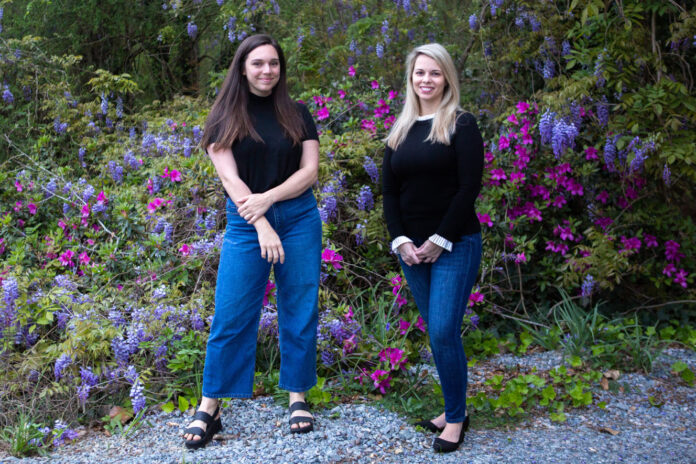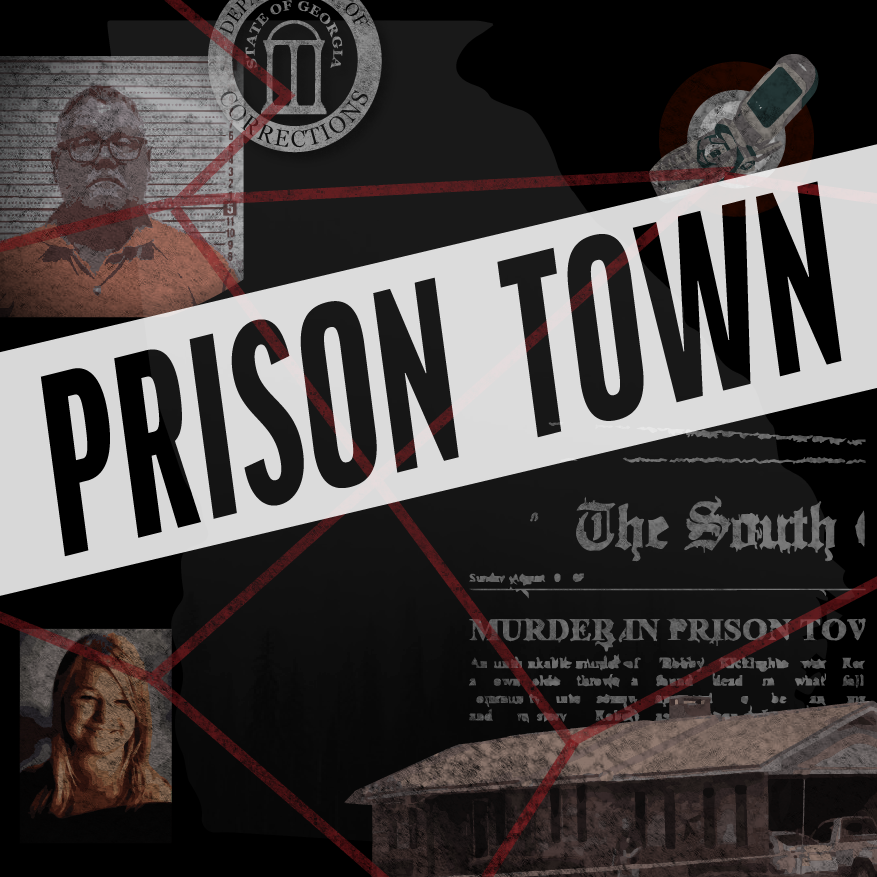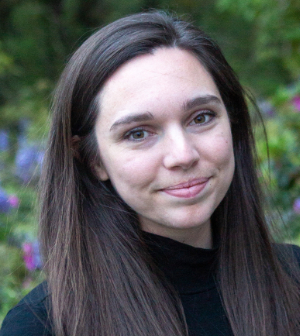
Evey Wilson Wetherbee, assistant professor of practice in the Center for Collaborative Journalism, explores the criminal justice system in a South Georgia town in this new series
Stories about crime and audio broadcasting have gone hand in hand for decades, from old radio dramas like “CBS Radio Mystery Theater” to the investigative journalism podcast “Serial” in 2014. True crime shows like “My Favorite Murder” and “Crime Junkie” dominate the most popular titles today on podcasting apps.
Evey Wilson Wetherbee, an assistant professor of practice in Mercer University‘s Center for Collaborative Journalism, has joined in on this sensation with “Prison Town,” a new podcast featuring original reporting that intertwines a complex tale of murder, incarceration and corruption in a small Georgia county.

With reporting partner Jessica Szilagyi, “Prison Town” has made a splash nationwide, as well as in Tattnall County, where the story takes place. The title alludes to the fact that Tattnall is the only county in Georgia that houses three prisons.
Wetherbee began reporting on prison conditions with Center for Collaborative Journalism partners after the Department of Justice announced it was investigating the state’s prison conditions.
“I became overwhelmed by the stories of families whose loved ones were killed while inside Georgia’s prisons,” Wetherbee said.
A documentary filmmaker by trade, Wetherbee created a short film about a grandmother adopting her grandchild after her son was murdered in prison.
This led her to Szilagyi, her partner on “Prison Town,” and to the start of their story.
“I kept wrestling with how to make people on the outside care about people on the inside of Georgia’s prisons, so I was continuing to report this story of people getting killed while serving their sentences,” Wetherbee said. “In the reporting, I heard a lot about violence around contraband and contraband phones used to extort families, and I also heard a lot about understaffing.”
Szilagyi had been writing about the murder of an 88-year-old man in Tattnall County named Bobby Kicklighter for The Georgia Virtue. Kicklighter was killed during a botched job by a hitman, who meant to target his neighbor, a corrections officer. This particular crime connected the trend lines Wetherbee had been following: understaffing in prisons, contraband phones, relationships with corrections officers, criminal justice policy and violence toward an innocent person.
After a few weeks passed and it seemed like there was no accountability, Wetherbee decided to act.
“It was like nothing happened. So I knew there was something there,” she said.
She drove two hours to Tattnall County to speak with Szilagyi, whose reporting was already respected by the people there, and the idea of “Prison Town” was born.
As a documentarian, Wetherbee originally envisioned the project as a film with Szilagyi as a character, like her recently completed Emmy-nominated work “Saving Juliette.” But as she continued researching with Szilagyi and they decided to produce the project together, she was compelled to try something new.

“As I kept digging into the story, we realized that the story had to be episodic. It was nonlinear, and the story had so many loops and turns that it felt like it needed more time than a film,” Wetherbee said.
There were other benefits to audio as well, Wetherbee said.
“Truthfully, we got to this point in our reporting where we were acutely aware of corruption and connections to organized crime, so we started to be nervous about who we were meeting with in person,” she said.
Phone interviews could be more intimate while still keeping the participants and the journalists safe.
As they were investigating Smith State Prison, Warden Brian Adams was arrested. The podcast format made it easier for the duo to distribute the story quickly.
“We knew we had been right all along, so the project had to pivot and become a breaking news project,” Wetherbee said.
The change has been refreshing for Wetherbee.
“I have really fallen in love with audio. I can tell slightly different stories in a slightly different way because I can weave a story as I host it. I feel less confined. I also really enjoy creating soundscapes and weaving in archival audio as well,” she said.
Wetherbee describes her training as “a true multimedia journalist” and tries to teach her students the same kind of flexible skills that will inform their careers. Her quick change in reporting medium is a philosophy she wishes to share with students, encouraging them to get a story out, so it can have impact.
“Everything you make informs the next thing that you make, but you cannot be paralyzed by perfection,” she said.
Some journalism students participated in the making of the show. An investigative class did background research on some of the people described in the podcast, while Wetherbee also allowed students to have a hand in the show’s name and theme song.
“I love being able to create work and bring those lessons back into the classroom,” she said.
Szilagyi and Wetherbee hope their show, which broke into the top 250 true crime podcasts on Apple’s chart, will introduce true crime lovers to public policy.
Listeners can listen to the entire season on Spotify, Apple Podcasts and other major podcasting apps, as well as the the “Prison Town” website.








